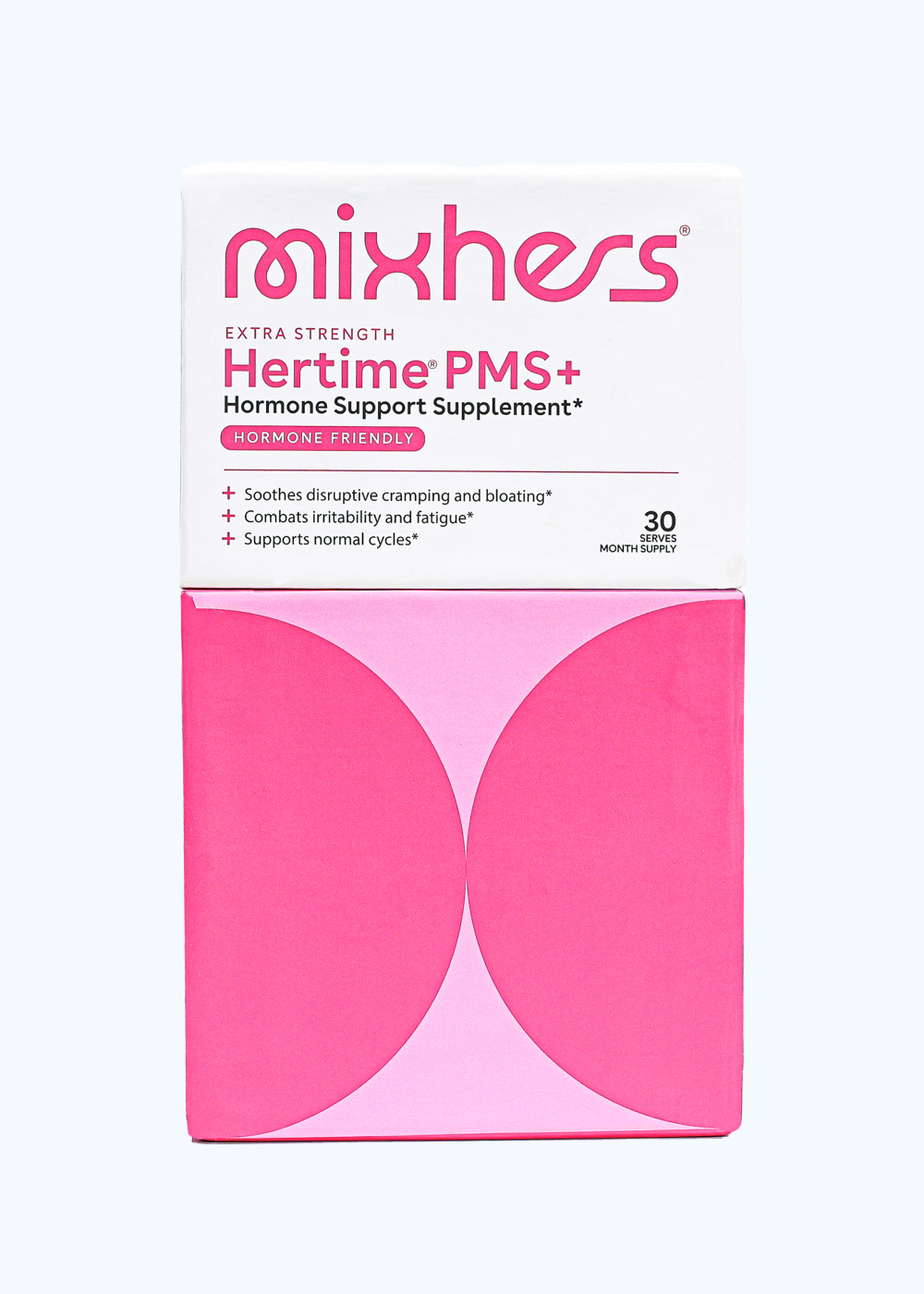There are many possible causes of dyspareunia. Let’s go over each of the possible causes in greater detail.
Do you ever feel like there’s too much painful friction going on during intercourse? If so, you may be dealing with insufficient vaginal lubrication. Hormone imbalances are often to blame for vaginal dryness. Bringing your hormones back into balance may help relieve this condition. You can also rely on sexual lubricants to help reduce vaginal pain during intercourse.
Remember that women often need more time than men to achieve sufficient sexual arousal. So if your partner likes to do the deed in 60 seconds flat, kindly bring up the fact that women need some time to get properly lubricated. Excessive vaginal dryness can make intercourse less enjoyable for both parties involved. Suggest putting aside additional time for foreplay if you ever have pain during sex due to dry vaginal tissue.
A vaginal infection can make sex unbearably painful. Vaginal infections (also called vaginitis) are very common. They include the following:
- Yeast infections
- Trichomoniasis
- Bacterial vaginosis
Some of these infections are considered sexually transmitted diseases while others are not. Some women are surprised to discover that douching is a common cause of vaginal infections. Additionally, wearing tight-fitting clothing or clothing made from synthetic materials increases your likelihood of developing an infection.
Even certain soaps and perfumes can lead to vaginitis because they disrupt the natural pH of your vagina. For the sake of your reproductive health, it’s best to only allow plain old water near your vagina since fragranced products can lead to an infection.
If you’re trying to avoid pregnancy, you should know that certain birth control products (specifically spermicide products) may also increase your risk of vaginal infections.
Vaginismus is usually caused by prior trauma (often stemming from sexual abuse) and is a psychological condition that causes physiological changes to the body. People with vaginismus experience intense spasms of the vaginal muscle during intercourse or in anticipation of intercourse. As the vaginal opening tightens up, it can lead to sexual pain.
Pelvic inflammatory disease is often a complication of gonorrhea, chlamydia, and other sexually transmitted diseases. Pelvic inflammatory disorder may cause lower abdominal pain, burning with urination, bleeding after sex, and vaginal discharge.
Prompt treatment is important for avoiding infertility and other complications from pelvic inflammatory disease. If you think you have pelvic inflammatory disease, you and your sexual partner should both be tested and treated as needed.
Fibroids are noncancerous growths or lumps in the uterus. They can range significantly in size and do not always cause symptoms. In extreme cases, fibroids can become so large and prevalent that they distort the shape of the uterus. Women who experience symptoms from fibroids may develop any of the following:
- Frequent urination
- Heavy menstrual bleeding
- Constipation
- Long menstrual periods (often lasting longer than a week)
- Leg pains or backaches
- Frequent urination
- Pelvic pain or pressure on the pelvic muscle
- Difficulty fully emptying the bladder
The Mayo Clinic recommends seeing your doctor if you have unexplained low red blood cell count, bleeding or spotting between periods, or pelvic pain that doesn’t go away. You should seek immediate care if you ever experience a sudden onset of sharp pelvic pain or severe bleeding from your vagina.
Endometriosis is a disease that occurs when tissue that is similar to endometrial tissue (in the uterus) grows outside of the uterus. Usually, this tissue grows on the fallopian tubes, ovaries, and around the uterus. In rare cases, it can also travel to other parts of the body.
Endometriosis is usually painful, though in some cases symptoms may be minimal. Endometriosis is especially prevalent among women between the ages of 30 and 40 and can impact fertility due to internal scar tissue. If you are a woman with endometriosis, you may experience painful sexual intercourse.
Sometimes, pain during sexual intercourse can be caused by a lack of sexual arousal. If you engage in sexual activity when you have no sexual desire and your body is not primed for sex, it’s more likely to hurt. There are many potential reasons for lack of sexual arousal, including menopause, previous traumatic experiences with sex, or hormone imbalances.
Poor mental health can also lead to a lack of sexual desire as well as decreased satisfaction with life and personal relationships. If you occasionally feel disinterested in sex, don’t worry. That’s perfectly normal. It’s only when the lack of sexual arousal is persistent that you should start to worry.
Talking to a doctor or therapist may help you address the underlying cause of your sexual disinterest. You may also wish to try a hormone-balancing product such as Mixhers Libido to see if it helps increase your libido and sexual health.
It makes sense that intercourse won’t feel great if you’re dealing with any type of genital irritation. Female genitals are ultra-sensitive to outside influences, which is why you should avoid using any soaps, perfumes, or other feminine hygiene products that cause genital itchiness, redness, or irritation.
If you and your partner use condoms during intercourse, your sexual discomfort may stem from a latex allergy. Try using other birth control methods for a while to see if your genital irritation goes away. You may also want to schedule a pelvic exam if you can’t figure out what’s causing your sexual pain.
Vaginal atrophy is a condition that can make intercourse painful and occurs when the vaginal wall becomes thin and inflamed. Vaginal atrophy typically occurs after menopause and is caused by low estrogen levels. It can lead to vaginal dryness and happens to as many as 70% of women who have gone through menopause.
Ovarian cysts are very common. They are sacs filled with fluid that are located in or on the ovaries. They usually form during ovulation (which occurs every month when an ovary releases an egg). Most ovarian cysts are harmless, though some can cause severe pain during ovulation and intercourse.
If an ovarian cyst bursts, it can potentially lead to ovarian torsion and can significantly increase pain. Other common signs of ovarian cyst rupture include dizziness, fever, weakness, and unexpected vaginal bleeding.
Vulvodynia refers to chronic pain that occurs around the vaginal opening (the vulva). This condition is pretty mysterious because there is no known cause. Most cases of vulvodynia last at least three months. The irritation and pain associated with this condition can make sex unbearable. It can even make it impossible to sit for long periods of time.
Some women with vulvodynia may only experience pain in a localized area of the vulva, while other women may experience pain in multiple locations. Many women describe the pain from this condition as an unbearable burning sensation.
Potential causes of vulvodynia may include:
- Genetic factors
- Muscle spasms
- Hormonal changes
- Frequent antibiotic use
- Hypersensitivity to yeast infections
- Nerve injury
- History of sexual abuse
- Allergic reaction to certain chemicals
This condition can impact women of all ages and ethnicities.
Ectopic pregnancy refers to a pregnancy that occurs when the embryo attaches outside of the uterus. Usually, ectopic pregnancies occur in the fallopian tubes. These pregnancies can cause significant abdominal pain and inflammation that can make sex intolerable. Ectopic pregnancies are life-threatening and require emergency treatment.
It’s important to follow your doctor’s recovery instructions after childbirth or surgery. Your body needs time to recover from these types of traumatic experiences. Engaging in sex too soon after either of these situations can lead to pain and potential injury.
There are many varieties of sexually transmitted diseases, and most of them are capable of causing mild to intense sexual pain. Some examples of common STDs include herpes, genital warts, and sores. Since STDs are highly contagious, it’s important to treat them and take precautions when having sex.
The pelvic floor consists of the muscles that extend from the coccyx at the back of the pelvis to the front of the pelvis. They look a lot like a hammock and help hold the uterus, bladder, and bowel inside the pelvis.
Pelvic floor muscle dysfunction occurs when you can’t relax or coordinate your pelvic floor muscles. People with this condition often have trouble with bowel movements and may experience urine or stool leakage. Pain during intercourse is another possible symptom associated with pelvic floor muscle dysfunction.
Low self-esteem, depression, anxiety, and other psychological issues can cause sex to feel painful to you. They can also prevent you from achieving sexual arousal. Past sexual abuse is another common cause of pain and aversion to sex.












